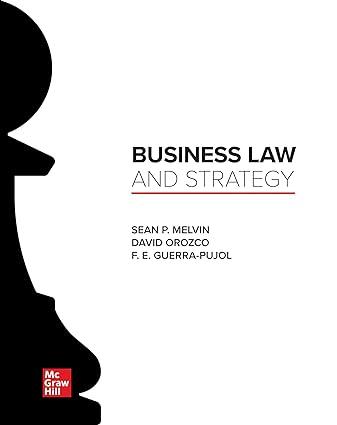Henry Ford, majority shareholder of the Ford Motor Company, announced that rather than pay a special dividend
Question:
Henry Ford, majority shareholder of the Ford Motor Company, announced that rather than pay a special dividend to the company’s shareholders, he was going to reinvest the accumulated earnings in order to expand the company and hire more workers. He stated, “My ambition is to employ still more men, to spread the benefits of this industrial system to the greatest possible number, to help them build up their lives and their homes. To do this we are putting the greatest share of our profits back in the business.” He further indicated that he wished to lower the price of the Model T car to make it more accessible to the general public. Two minority shareholders, John and Horace Dodge, sued to require payment of the dividend. The Michigan Supreme Court upheld management’s right to make decisions for the benefit of the company (the business judgment rule, discussed in Chapter 30, “Corporations: Formation and Organization”);
however, the court said that “the corporation is a business, not a charity,” and found for the Dodges because Henry Ford’s decision was to benefit the public instead of shareholders.
CASE QUESTIONS
1. Should a corporation act solely to maximize shareholder wealth?
How should a corporation balance corporate social responsibility with shareholder interests?
2. Which moral philosophy approach describes Henry Ford’s stated actions? Explain 3. Although not an issue at trial, the Dodge brothers used their dividends to build their own company, Dodge Brothers Company
(Dodge Motors), which was later sold to, and became a part of, Chrysler Motors. Many historians speculate that Henry Ford was actually trying to slow down the formation of the Dodge brothers’
new company. If Henry Ford’s alleged motive was true, was he acting in an ethical manner?
Step by Step Answer:

Business Law And Strategy
ISBN: 9780077614683
1st Edition
Authors: Sean Melvin, David Orozco, F E Guerra Pujol





